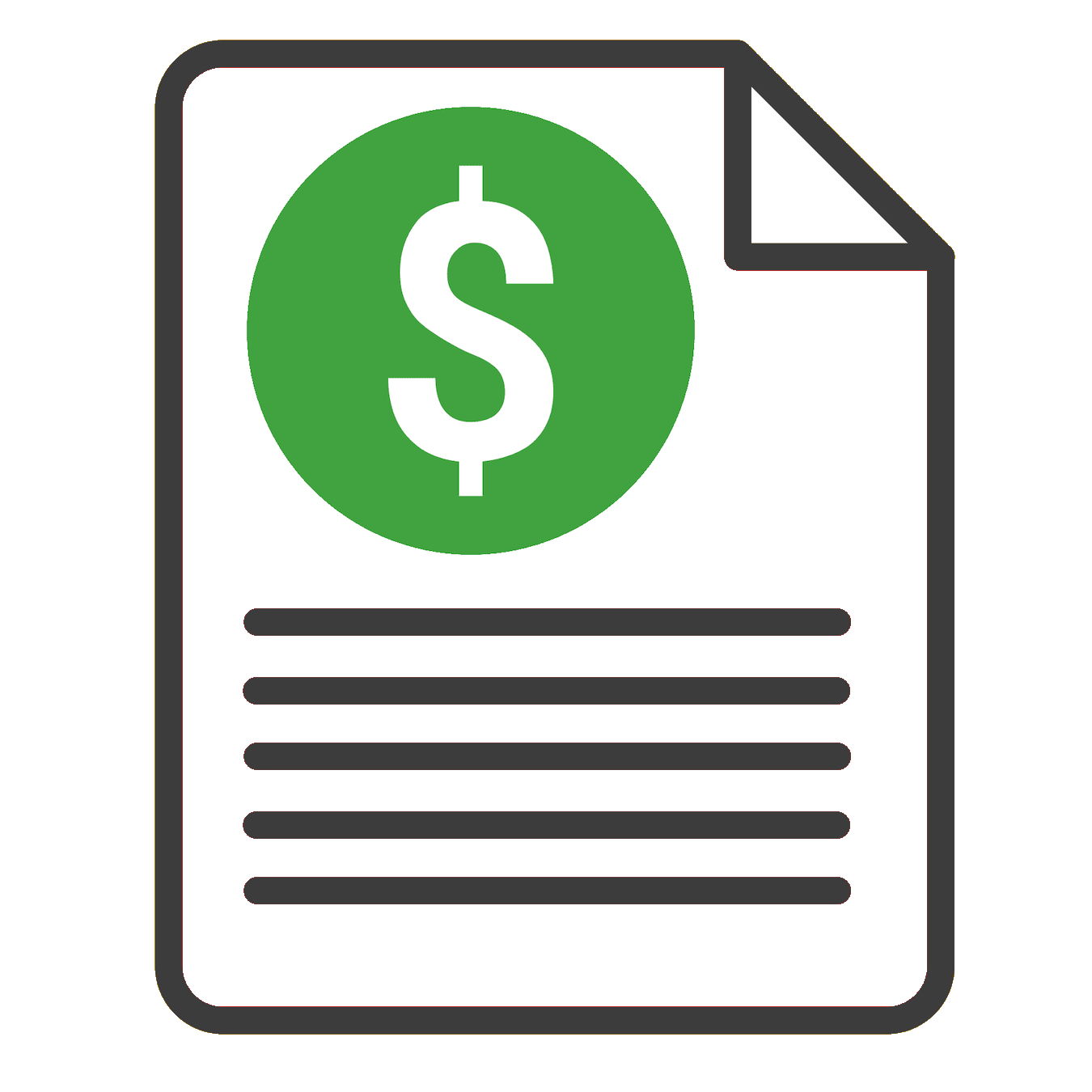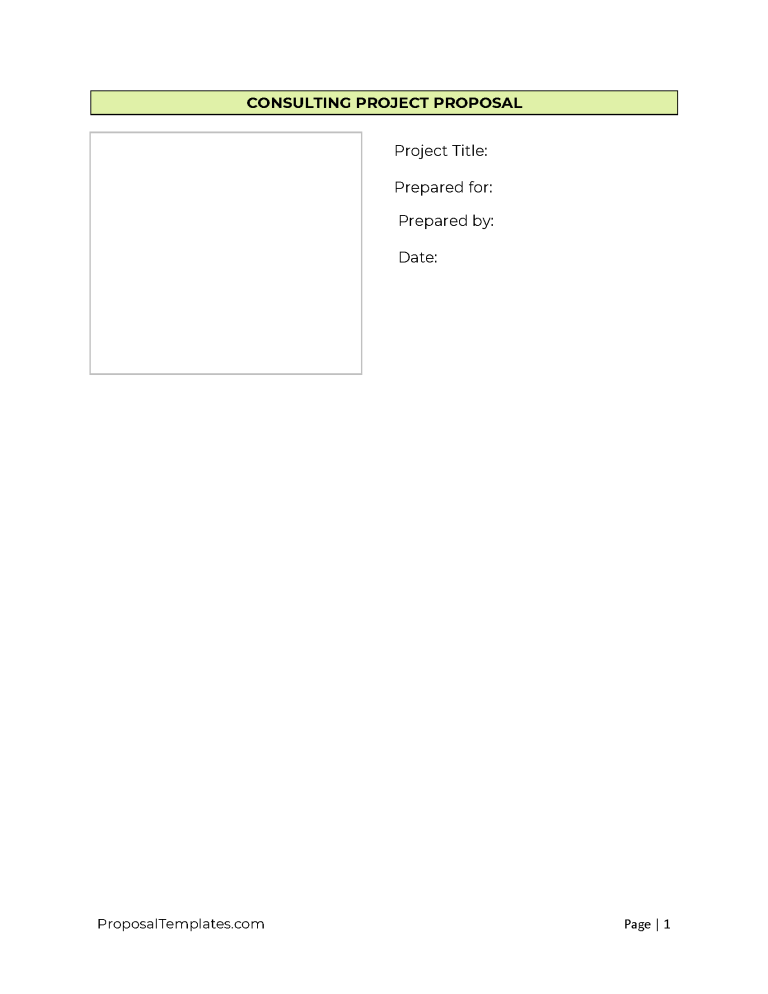Consulting project proposals are versatile and used whenever a project calls for consultation services. Consulting agencies or firms will directly answer this need by presenting their skills and expertise while addressing the client’s objectives.
Types Of Consulting Project Proposals (10)
- Education Consulting – This proposal is sent whenever educational institutions seek system improvements such as educational technology integration.
- Environmental and Sustainability Consulting – Proposals often focused on improving a company’s eco-friendly practices (i.e., carbon footprint reduction).
- Financial Consulting – Proposals approaching clients with a project focusing on financial health, thus requiring financial analysis and solutions.
- Human Resources (HR) Consulting – A proposal to improve an organization’s workforce through objectives such as recruitment and retention strategies.
- IT Consulting – Proposals developed to attract technical projects involving goals such as software development, cybersecurity, or system integration.
- Legal Consulting – A proposal featuring a firm’s organizational skills and legal procedure knowledge that offers consulting on legal matters (i.e., court actions).
- Management Consulting – A proposal written for projects focusing on the overall improvement of a company’s operations through management adjustments.
- Marketing Consulting – Proposals answering projects improving a company’s market presence (i.e., branding or new marketing strategies).
- Social Media and Digital Marketing – Proposals to implement media marketing strategies so that a client’s online presence grows.
- Strategy Consulting – A proposal generally aimed at improving a client’s business strategies, thus focusing on growth potential and sustainability.
What Should Be Included (14 Items) |
1 . Cover Page
Produce a cover page that concentrates on delivering the proposal’s title and date of submission clearly but is well designed. Also, identify both the proposing company and the client on this page.
- Project Title
- Proposing Company Name
- Branding, Logo
- Client’s Name, Client Contact Information
- Submission Date
2. Consulting Project Proposal Executive Summary
Compose one or two pages summarizing the proposal while piquing their interest in continuing. Pay close attention when discussing subjects such as the proposed solution methodology and scope of work.
- Project Title, Introduction, Team, Expertise
- Client Needs, Objectives, Proposed Solution
- Benefits, Outcomes, Project Timeline, Budget
- Estimated Start Date, Estimated End Date
- Pricing, Contact Information, Call To Action
3. Introduction
Give a favorable discussion on the consulting company’s background and mission, as well as how this relates to the project. Demonstrate that the proposal’s solution is the result of the consulting company’s experience and industry knowledge.
- Consulting Firm Overview, Mission, Values
- Client’s Needs Summary, Industry Challenges
- Project Overview, Consulting Engagement Benefits
- Unique Selling Proposition (USP)
- Confidentiality Statement, Next Steps
4. Consulting Project Overview
Layout the project goals, its challenges, and the consulting company’s solutions in detail through an in-depth project analysis. Use this area to present the boundaries and scope of the project as well as its deliverables, budget, and timeline.
- Project Objectives, Project Phases, Personnel, Constraints
- SWOT (Strength Weaknesses, Opportunities, Threats)
- UPS (Unique Selling Points), ROI (Return On Investment)
- Deliverables, Risk Assessments, Assumptions
- Client Responsibility, Terms And Conditions
5. Scope Of Work
Inform the consulting client of every task and goal that is required for the project. Specifically, break down each milestone and explain how each will be achieved.
- Project Objectives, Goals, Project Deliverables
- Analyses, Software, Tasks, Activities, Timeline, Milestones
- Resources, Personnel, Equipment, Assumptions
- Approach, Quality Standards, Review, Approval Process
- Change Control Procedures, Roles, Responsibilities, Risks
6. Project Objectives
Explicitly define every consulting project objective and demonstrate the SWOT (strengths, weaknesses, opportunities, threats) analysis for the consulting agency’s strategy. It is also essential that all objectives comply with SMART (specific, measurable, achievable, relevant, time-bound) criteria.
- Objectives Executive Summary, Opportunities, Client Goals
- SMART Analysis (Specific, Measurable, Achievable, Relevant, Time-Bound )
- Quantifiable Outcomes, Efficiency, Revenue Growth
- Stakeholder Alignment, Strategic Alignment, Rationale
- Assumptions, Value Alignment, Mission Alignment
7. Methodology
Discuss, in detail, the tools, rationale, and methods the consulting agency applied to the project’s challenges. Convince the potential consulting client of the validity and, especially, the effectiveness of the consulting agency’s plans.
- Overview, Scope of Work Recap, Industry Standards
- Problem Statement, Opportunity Identification, Milestones
- Approach, Strategy, Analysis, Process Improvement
- Phases, Techniques, Project Management Methodologies
- Risk Management, Quality Assurance, Client Involvement
8. Project Consulting Timeline
Give a complete timeline of the project phases as well as its deliverables. Specifically, document when every deliverable should be expected along with other important dates (i.e., meeting dates).
- Meetings, Check-ins, Final Deliverable Submission Date
- Client Deliverable Review Points, Internal Review Points
- Phase Durations, Milestones, Dependencies
- Project Start Date, Tasks, Activities, Project End Date
- Gantt Chart, Visual Timeline, Contingency Planning
9. Team And Expertise
Dispense the project team roster with information such as the team members’ identities, roles, experience, and qualifications. Furthermore, discuss the history and past accomplishments of the consulting team.
- Project Team Overview, Team Member Qualifications
- Project Manager, Experts, Client Confidence Statements
- Roles, Responsibilities, Relevant Experience, Resumes
- Biographies, Team Collaboration, Communication
- Client Interaction, Training, Knowledge Transfer
10. Budget
Explain in detail the costs contributing to the consulting project’s total price. Remember that potential clients will generally favor transparency whenever discussing project costs.
- Project Cost Overview, Cost Breakdown, Hourly Rates
- Fixed Fee, Retainer, Payment Schedule, Milestone
- Invoicing Procedures, Expense Reimbursement
- Taxes, Cost Contingency, Escalation Clause
- Discounts, Client Responsibilities, Cost Control
11. Terms And Conditions Of Consulting Project
The client must understand the legal definitions and responsibilities involved so the potential consultancy project can run smoothly. Thus, spell out each agreement accompanying this proposal and the project, including third-party agreements.
- Payment Terms, Responsibilities, Termination Clause
- Deliverables, Confidentiality, Non-Disclosure
- Conflict of Interest, Liability and Indemnification
- Force Majeure, Dispute Resolution, Survival Clause
- Insurance Requirements, Governing Law
12. Client References
- Client Testimonials, Case Studies
- Project Descriptions, Client Success Stories
- Industry Relevance, Client Names, KPIs
- Project Metrics, Long-Term Relationships
- Client Consent, Client Infomation, Visual Elements
13. Conclusion
Summarize the proposal’s selling points while reiterating the projected impact of the consulting team’s efforts on the project. Inform the client of any deadlines for this proposal’s acceptance, but keep the language positive and inviting.
- Key Points Summary, Reiterations
- Confidence, Capabilities, Commitment
- Collaboration, Next steps, Contact Information
- Gratitude, Enthusiasm, Appendix Reminder
- Closing Statements, Call To Action
14. Appendices
Reserve a section as a presentation area for large items since the proposal should be presentable and neat-looking. This can be achieved by keeping supplementary items such as brochures at the end of the proposal.
- Detailed Project Timeline, Survey Questionnaires
- Sample Deliverables, Detailed Budget Breakdowns
- Testimonials, Accreditations, Process Documentation
- Team Member Resumes, Technical Specifications
- Research Findings, Risk Management Plans

